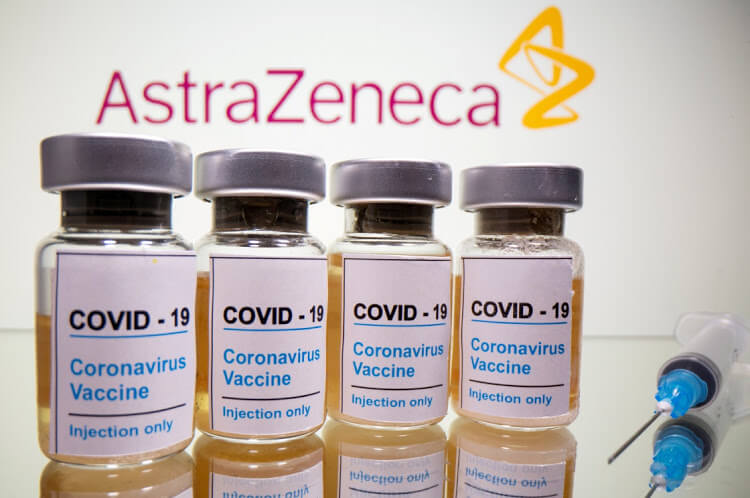
UNICEF Supplies 4m Doses of Ox-ford AstraZeneca Vaccines to Nigeria
The United Nations International Children’s Emergency Fund (UNICEF) has placed a supply for four million doses of Oxford-AstraZeneca vaccines to be supplied to Nigeria.
The Executive Director of the National Primary Health Care Development Agency (NPHCDA), Dr. Faisal Shuaib made this disclosure yesterday at the Presidential Task Force on COVID-19 media briefing in Abuja. The federal government had ordered 16 million doses of the vaccines.
AstraZeneca vaccine has been authorised for emergency use in Nigeria by the National Agency for Food and Drug Administration and Control (NAFDAC) following its review and assessment through a reliance mechanism upon receipt of the dossier from the manufacturer.
Shuaib said that although it will take two weeks from the time the purchase order is placed before the vaccines are delivered, UNICEF has assured that the consignment will arrive within one week.
“As of today, a purchase order has been placed by UNICEF Division for the AstraZeneca vaccine. Under normal circumstances with routine immunisation vaccines, it takes two weeks from when the purchase order is placed to when we receive the vaccine in Nigeria. “However, considering the emergency situation in Nigeria, we have been informed by UNICEF that it wills fast-track to potentially ensure that the vaccines arrive in Nigeria within one week. As soon as we receive a confirmation on the date of arrival, we will also inform Nigerians,” Shuaib said.
He said that the four million doses of AstraZeneca vaccines will arrive in the first batch of supplies to the country and be stored in the national strategic cold chain.
He also assured on NPHCDA’s capacity to store the vaccines.
He said the cold chain requirement for AstraZeneca vaccine is two to eight Degrees Celsius, which he said is in alignment with the country’s cold chain equipment that facilitates its routine immunisation and was used during the polio eradication journey.
Shuaib said the AstraZeneca vaccines will be stored in cold rooms at the zonal, state, and the local governments’ levels in vaccine refrigerators, adding that Nigeria has the facilities with solar direct coating equipment.
He noted that approximately 7,500 political wards in the country have solar direct refrigerators to enable the storage of vaccines even where there is no electricity supply.
“The remaining political wards that don’t have these facilities are currently being fed by agents that have assured us that the process will be completed by the end of this year,” Shuaib said.
Meanwhile, the Director General of the Nigerian Civil Aviation Authority (NCAA), Captain Musa Nuhu, has said that the federal government will today write a protest letter to the governments of the United Arab Emirates (UAE) and the Netherlands over the ill-treatment of Nigerians by Emirates Airline a KLM Royal Dutch Airlines.
Nuhu gave the updates at the PTF briefing in relation to the saga between the two airlines and the country after KLM and Emirates stopped flying passengers out of Nigeria in the last two weeks in protest against the federal government’s refusal of their request for Rapid Antigen Test for passengers four hours before departure.
The NCAA DG said at the time Nigeria was not ready for the logistics, which prompted the airlines to stop their flights, a development that he said, resulted in many passengers failing to catch their flights.
“NCAA had discussions with the airlines on the unfavorable treatment of Nigerians and they are certainly going to compensate passengers whose flights were cancelled or delayed on short notice. Discussions are still ongoing with the airlines and it involves the Ministry of Foreign Affairs and NCAA to resolve the issues. Letters will go out to the governments of these countries Tuesday morning (today) and to the airlines with a deadline to give further information to help PTF resolve it once and for all and in the very near future,” he said.
NCAA added that it has also written the airlines operating West African regional flights on how to deal with the fresh outbreak of Ebola in Guinea and Liberia.
The civil aviation authority advised the airlines to be cautious on the kind of passengers to board and the symptoms to look for in addition to measures and procedures to take in case they have a suspected case of Ebola aboard the flight, which include informing the authorities so that proper preventive arrangements can be made.
Also the Deputy National Incident Manager, on COVID-19, Dr. Hassan has also announced the immediate coming into effect of new modifications on the phase three eased on lockdown, which began on June 1, 2020.
The modifications, according to Hassan, include the maintenance of the current nationwide curfew from 12 am to 4 am, restriction on mass gathering outside the workplaces, funerals to be attended by no more than 50 persons, places of worship not to exceed 50 per cent of capacity and maintenance of mandatory boarding requirements for international passengers arriving from the UK and South Africa.
Others include the closure of bars and nightclubs until further notice and avoiding congestion in government offices by allowing only essential staff from Grade Level 12 and above to come to work until March 31, 2021.

